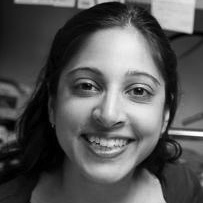Q&A With HiSum Speaker Dr. Rumi Chunara
This post is part of our ongoing series profiling speakers for our upcoming Health Innovation Summit.
Rumi Chunara, PhD, is an Instructor at Harvard Medical School, with a background in building biological sensors. Her interests are in building and using novel information sources to harness information directly from individuals and describe and predict population-level public health issues. She has run studies using data from Twitter, Facebook, HealthMap and Amazon Mechanical Turk.
 How can social media play a role in disease detection? What role can it play in interventions?
How can social media play a role in disease detection? What role can it play in interventions?
Originally, social media’s role in disease detection and health was unclear. However, over the past few years, there has been a lot of work by different groups (academic, industry, government and others) demonstrating that this medium can be used to detect disease outbreaks early, monitor how a disease outbreak is progressing, understand aspects about disease that are otherwise difficult to measure from a large number of people such as behaviors and sentiments, and, finally, provide another data source to validate existing health metrics.
Given that we know a relation exists between the online medium and our real-world health, the next steps are figuring out how to best use the relation to intervene and improve health. There have already been some important strides in this direction. It has been shown that specific groups can be targeted and individuals can use these online mediums as places to discuss and learn about health (outside of traditional means like going to see a doctor). The online medium can also be used to quickly gather a lot of information that can be then used in traditional off-line public health interventions. In order to execute these interventions at scale, academics can work together with groups in industry and those who create these well-used platforms.
What are the critical factors encouraging individual participation and engagement in health tracking and treatment?
We have had a lot of experience in understanding how and why individuals actively share health information. Researchers have explored many incentives such as rewards including money or pertinent and focused health information as feedback. We have found through our interactions with individuals in the United States and other parts of the world, that education about the importance of disease surveillance is vital. Engaging and educating people about disease surveillance will encourage them to get more involved and can lead to a more proactive approach for the health of individuals and our communities.
You have undergraduate degree in electrical engineering. What sorts of new collaborations do you see coming out of engineering and medicine?
Through engineering, we have been able to establish methods for designing and building things that are universal and robust enough to now apply to the health domain. For example, improvements in communication technologies have resulted in a plethora of digital data from social media which is now being organized and analyzed with computational techniques to understand health better. On the hardware side there are many tools that are becoming available to improve health for individuals such as diagnostic tools and personal sensors. The interplay of the new devices for individuals and harnessing the data that they generate will be an area where there can be further impact as well for populations.
If you could collect three pieces of data from the entire US population, what would it be?
Wow, what an opportunity! In order to get a sense of overall health I’d ask people how they are feeling (imagine a choice between two buttons we could press daily: “I’m feeling well” or “I’m not feeling well”). For understanding disease dynamics location is vital, so I’d also want to know where they are. Finally, to learn a little more about the individuals I’d also ask for one more piece of information about them such as their age. Fun to imagine!
Join us and hear more from Dr. Chunara on her panel, Health Data in the Wild, at Health Innovation Summit.
Do you have any more questions for Dr. Chunara? Share them below and hear the answer on August 9th.

